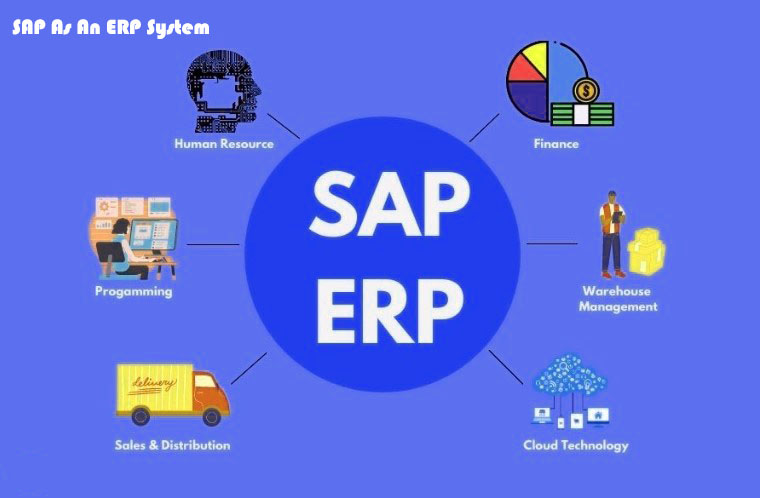SAP (Systems, Applications, and Products in Data Processing) is a widely recognized and utilized Enterprise Resource Planning (ERP) system. It’s designed to help businesses integrate various processes across their organization, ensuring data consistency, streamlined operations, and improved efficiency. Here’s an overview of SAP as an ERP system:

Key Features of SAP ERP
- Modularity: SAP offers a modular structure, allowing organizations to select and implement only the modules that suit their business needs. Some popular modules include Financial Accounting (FI), Controlling (CO), Sales and Distribution (SD), Materials Management (MM), Human Capital Management (HCM), and Production Planning (PP).
- Integration: One of the core strengths of SAP is its ability to integrate data across different modules and business functions. This integration reduces redundancy and ensures that everyone in the organization works with the same set of data.
- Customization and Flexibility: While SAP provides a robust set of features, it also allows customization to meet specific business requirements. Companies can create custom reports, workflows, and processes to align with their unique operations.
- Scalability: SAP is designed to scale with business growth. Whether it’s a small business looking to expand or a large enterprise managing multiple subsidiaries, SAP can accommodate varying scales of operation.
- Advanced Analytics and Reporting: SAP provides comprehensive reporting tools and integrates with business intelligence platforms to offer advanced analytics. This helps organizations gain insights into their data, identify trends, and make informed decisions.
- Cloud and On-Premise Deployment: SAP offers flexibility in deployment, allowing businesses to choose between cloud-based solutions, on-premise installations, or hybrid approaches. Cloud-based solutions provide greater accessibility, while on-premise installations offer more control over data and infrastructure.
Benefits of Using SAP ERP
- Operational Efficiency: By integrating various business processes, SAP reduces duplication of effort and streamlines operations, leading to increased efficiency.
- Data Consistency and Accuracy: With a single source of truth, organizations can ensure data consistency across all departments, reducing errors and discrepancies.
- Improved Decision-Making: The analytics and reporting tools provided by SAP enable businesses to make data-driven decisions, leading to better outcomes.
- Regulatory Compliance: SAP ERP systems are designed to help businesses meet various regulatory and compliance requirements, such as financial reporting standards and data protection laws.
- Global Reach: SAP supports multiple languages and currencies, making it suitable for global businesses with operations in different countries.
Challenges and Considerations
- Cost: Implementing SAP can be costly, including licensing fees, customization, integration, training, and ongoing support. It’s essential to consider the total cost of ownership.
- Complexity: SAP is a complex system, requiring significant expertise to implement and manage. This can lead to longer implementation times and a steep learning curve for employees.
- Change Management: Transitioning to SAP can involve significant changes in business processes, necessitating a robust change management strategy to ensure a smooth transition.
Overall, SAP is a comprehensive and powerful ERP system that can bring significant benefits to businesses. However, it also requires careful planning, expertise, and ongoing management to realize its full potential.